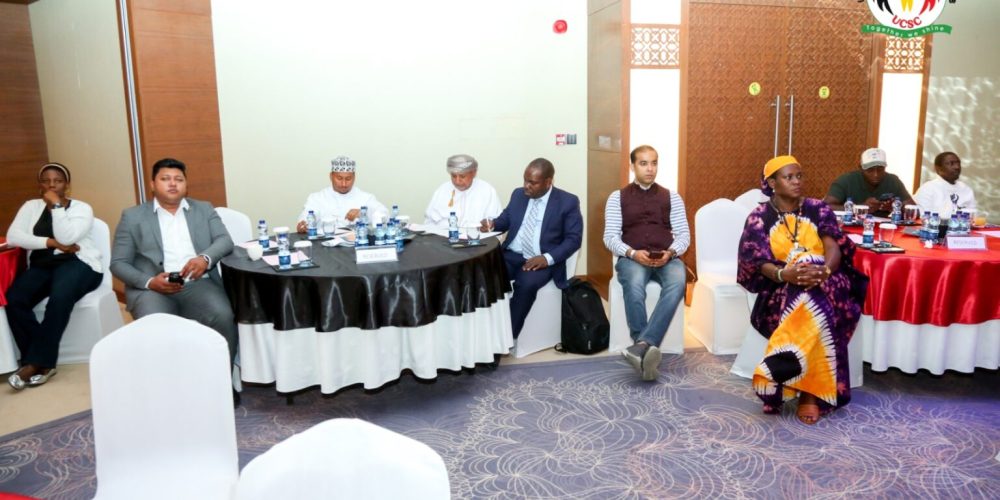EFRIS: Uganda manufacturers disagree with traders

KAMPALA. The Uganda Manufacturers Association (UMA) has expressed its backing for the Electronic Fiscal Receipting and Invoicing System (EFRIS) while also pinpointing shortcomings in its execution by government agencies.
UMA Chairman Deo Kayemba noted that although the system is crucial for effective tax administration, taxpayers lack understanding of it, as well as the tax structure, emphasizing the need for thorough public awareness before implementation.
EFRIS facilitates real-time issuance and management of e-receipts and e-invoices for business operations, streamlining daily transactions and administration.
Transactions initiated through the system promptly transmit details to tax authorities for e-receipt and e-invoice generation, primarily aimed at monitoring value-added tax (VAT) payment and ensuring proper record-keeping.
However, traders in Kampala and nearby regions have contested the system, alleging double taxation, as goods they trade have already incurred taxes at earlier stages. Uganda Revenue Authority (URA) refutes this claim, asserting VAT imposition at all supply chain levels per legal provisions.
URA maintains consistent engagement with trade associations and taxpayers, clarifying EFRIS’s significance and functionality, countering assertions of abrupt implementation.
Kayemba insists URA should assume responsibility for installing equipment necessary for electronic invoicing, suggesting compensation for compliant traders and advocating phased implementation to ensure smooth adoption.
UMA proposes a $50,000 capitalization threshold for VAT applicability, mirroring the investment license requirement, urging authorities to engage aggrieved traders for resolution, including addressing unfair competition from manufacturers with retail outlets.
Despite the Competition Act 2023 enactment, pending implementation obstructs addressing traders’ concerns effectively. Kayemba calls for expeditious operationalization through committee establishment and regulatory issuance.
Regarding garment taxation, UMA opposes altering specific duty rates for textile trade, contrasting protesting traders’ call for fabric and garment tax suspension. Kayemba argues such duties are vital for local industry protection, citing increased investment resulting from 2021 tax amendments















































Great – I should certainly pronounce, impressed with your site. I had no trouble navigating through all the tabs and related info ended up being truly simple to do to access. I recently found what I hoped for before you know it at all. Quite unusual. Is likely to appreciate it for those who add forums or anything, site theme . a tones way for your client to communicate. Nice task.
https://pestotomacau.info/
I’ve been surfing online greater than three hours today, but I never discovered any attention-grabbing article like yours. It is lovely value sufficient for me. Personally, if all webmasters and bloggers made just right content material as you probably did, the internet will likely be a lot more useful than ever before.
https://www.gorillasafariscompany.com/
Your style is so unique compared to many other people. Thank you for publishing when you have the opportunity,Guess I will just make this bookmarked.2
https://heaviermetal.net/
I truly appreciate your work, Great post.
https://amorosefamilychiro.com/
You actually make it appear really easy with your presentation but I find this topic to be actually something that I believe I’d never understand. It kind of feels too complex and very vast for me. I’m taking a look ahead to your subsequent submit, I?¦ll attempt to get the grasp of it!
https://pontificalorientalinstitute.com/
Super-Duper blog! I am loving it!! Will come back again. I am taking your feeds also.
https://luciennetrumpet.com/
Good day! Do you know if they make any plugins to safeguard against hackers? I’m kinda paranoid about losing everything I’ve worked hard on. Any recommendations?
https://tfgarquitectura.com
Thanks for sharing. I read many of your blog posts, cool, your blog is very good.
Thank you for your sharing. I am worried that I lack creative ideas. It is your article that makes me full of hope. Thank you. But, I have a question, can you help me?
I saw a lot of website but I believe this one holds something extra in it in it
https://youtu.be/SNxi1ueuRtE
This is the right blog for anyone who wants to find out about this topic. You realize so much its almost hard to argue with you (not that I actually would want…HaHa). You definitely put a new spin on a topic thats been written about for years. Great stuff, just great!
https://youtu.be/qIvUfNKO1-E
Yay google is my world beater helped me to find this outstanding internet site! .
https://www.icloudbypassonline.com/blog/about.html
F*ckin’ tremendous issues here. I am very glad to see your article. Thank you so much and i’m having a look ahead to touch you. Will you please drop me a e-mail?
https://okurka.net/czekoladowa-beza-pavlova/
Hey! I just wanted to ask if you ever have any problems with hackers? My last blog (wordpress) was hacked and I ended up losing many months of hard work due to no back up. Do you have any methods to protect against hackers?
https://youtu.be/nbRGILZXa7E
I’ve been absent for some time, but now I remember why I used to love this website. Thank you, I’ll try and check back more frequently. How frequently you update your site?
https://youtu.be/Qpn6Q2A8xtM
Can you be more specific about the content of your article? After reading it, I still have some doubts. Hope you can help me.
What i don’t understood is in reality how you’re no longer actually much more well-appreciated than you may be now. You’re so intelligent. You realize therefore considerably in terms of this topic, made me in my opinion imagine it from so many various angles. Its like men and women aren’t involved unless it¦s something to do with Girl gaga! Your individual stuffs nice. Always maintain it up!
https://youtu.be/DOThBdq7JmE
I have been exploring for a little bit for any high quality articles or blog posts in this kind of area . Exploring in Yahoo I eventually stumbled upon this web site. Reading this info So i am satisfied to express that I have a very good uncanny feeling I found out just what I needed. I so much indubitably will make certain to don’t disregard this site and provides it a glance on a constant basis.
https://youtu.be/1yYEhHYWjKE
Hey there I am so excited I found your site, I really found you by accident, while I was searching on Bing for something else, Anyhow I am here now and would just like to say thank you for a fantastic post and a all round thrilling blog (I also love the theme/design), I don’t have time to browse it all at the moment but I have bookmarked it and also added your RSS feeds, so when I have time I will be back to read more, Please do keep up the great work.
https://btinfo.co/iphone-8-live
As a Newbie, I am constantly searching online for articles that can benefit me. Thank you
https://www.acmepartyrentals.com/location-n-contact
You should take part in a contest for one of the best blogs on the web. I will recommend this site!
https://thenoblehackers.com/
Great post. I was checking continuously this blog and I am impressed! Extremely helpful information specially the last part 🙂 I care for such information much. I was looking for this certain information for a long time. Thank you and best of luck.
https://ethicalmasters.com/
Valuable info. Lucky me I found your web site by accident, and I am shocked why this accident didn’t happened earlier! I bookmarked it.
https://www.fdertolmrtokev.com
I consider something really special in this internet site.
https://austinlandscapelighting.us/home-accent-lighting/
Along with every thing which appears to be building within this subject matter, all your perspectives tend to be relatively exciting. Nevertheless, I appologize, but I can not give credence to your whole theory, all be it refreshing none the less. It appears to us that your opinions are not completely rationalized and in actuality you are generally yourself not even thoroughly certain of the assertion. In any event I did take pleasure in looking at it.
https://tfmarquitectura.com/